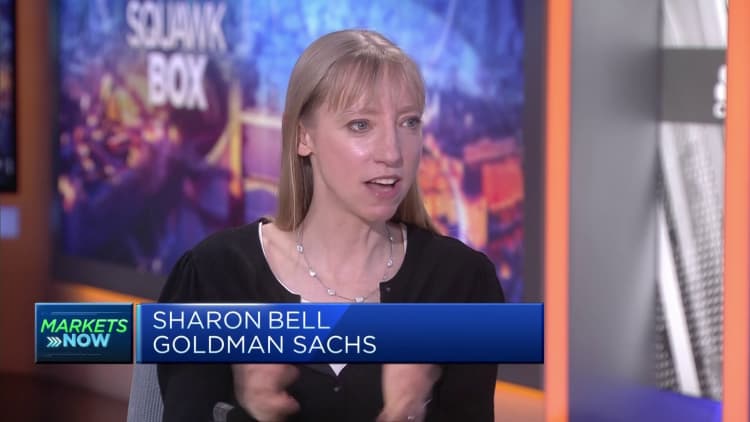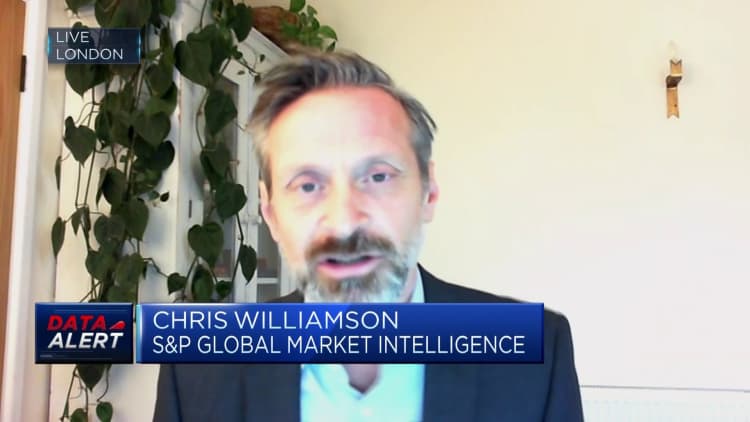
01 Mar Europe is having its worst earnings season since the onset of Covid
Arc of Triomphe Paris, Champs-Elysees France at night
vichie81 / iStock / Getty Images Plus
LONDON — Around a half of European companies missed earnings expectations in the latest reporting season despite already low expectations, analysts told CNBC, who predicted that the region will continue to struggle amid high interest rates.
As of Feb. 29 with 313 companies having reported, 50.2% posted a beat, according to a CNBC analysis of FactSet data. This was the smallest percentage of beats — thus the worst earnings season — since the first quarter of 2020 when the pandemic first hit European firms.
The sector breakdown showed that materials, consumer discretionary and health care were among the worst performing sectors for the last three months of 2023. On the other hand, tech and utilities were the sectors with the highest proportion of beats versus expectations, according to the FactSet data.
Edward Stanford, head of European equity strategy at HSBC, told CNBC Monday that “we have not seen such a low level of beats for a long time.” He added that the disappointment has been “pretty broad based.”
Philippe Ferreira, deputy head for economy and cross asset strategy at Kepler Cheuvreux, said there are a couple of reasons behind these disappointments.
“A weaker macro environment in Europe, with GDP [gross domestic product] growth close to 0% in third and fourth quarters, a significant exposure to China for some companies, which has been a hurdle for L’Oreal for instance,” he said. China is currently experiencing deflation and lackluster consumer demand.
Data from Europe’s statistics office showed that the European economy contracted by 0.1% in the third quarter. In the fourth quarter, the region’s GDP rose by 0.1%, thus avoiding a technical recession — defined as two consecutive quarters of economic contraction.

The European economy has faced a range of challenges, including the aftershocks of Russia’s full-scale invasion of Ukraine. This sparked an energy crisis in the region and led to record high inflation. As such, the bloc is currently dealing with record high interest rates from the European Central Bank, making it more expensive for companies to receive new finance.
Share buyback bonanza
Sharon Bell, a senior European strategist at Goldman Sachs, told CNBC that she had noticed a new trend for European corporates during this earnings season.
“What you have seen is a lot of companies announcing buybacks,” she told CNBC’s “Squawk Box Europe” Tuesday. Buybacks are where a firm buys back it own shares, thus making them more scarce which would boost their price and provide a bump for existing shareholders.
“It is absolutely huge, you’ve never really seen this before in 20, 30 years, European companies pay dividends, they don’t do buybacks,” she said.
Shell, Deutsche Bank, Novo Nordisk, UBS and UniCredit were among the European stocks that announced plans for share buybacks in 2024.

Goldman’s Bell named a few reasons for the trend, saying “earnings in the last few years have been reasonably good, they have good balance sheets,” and “there aren’t a lot of buyers for European shares.”
Looking forward to the next reporting season, however, strategists are pessimistic on the tide turning.
“We believe European corporate earnings might continue to be under pressure for the very same reasons, namely a growth slowdown and the lack of monetary policy support, on top of weak domestic consumer demand,” Ferreira said.
“We expect nonetheless a significant divergence between those companies exposed to U.S. consumers or to fast growing emerging markets, more positive, and those whose revenues are less diversified geographically,” he added.
